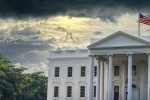Tax Insights: Are your goods on the list? CBSA releases July 2023 trade compliance verification priorities
August 30, 2023
Issue 2023-27
In brief
The Canada Border Services Agency (CBSA) has released an updated list of its trade compliance verifications1 for July 2023. Businesses that import goods listed as a verification priority should prepare for the likelihood of a CBSA trade compliance verification (or audit) in the near future, the results of which may include payment of additional duties, GST, interest and penalties. Given the retrospective nature of these audits, assessed amounts tend to be difficult to recover from customers through increased pricing. Importers should consider reviewing their historical import data (which can be obtained from the CBSA) annually to assess the potential impact of audit verification priorities and, if errors are identified, take corrective action before being notified of a CBSA audit to mitigate punitive interest and potential penalties.
In detail
What is a trade compliance verification?
The CBSA manages the verification program in two ways – by random verifications and through verification priorities. The list of verification priorities is continuously updated so that it reflects the CBSA’s assessment of non-compliance with customs legislation to ensure that importers comply with the requirements for tariff classification, customs valuation and origin. The verification priorities are either imports from a specific category of goods or a specific industry.
Some priorities carry over from one year to the next and some remain on the list for several years, e.g. the valuation of apparel (the CBSA has been targeting clothing and apparel for many years and there have been numerous related audits and assessments).
The overall goal of these verifications is to:
- enforce compliance with customs requirements, and
- ensure that the correct amount of duties is being assessed
All importers are at risk of random or compliance-based verifications.
Customs valuations issues
The main customs valuation issues for all importers include:
- using an incorrect valuation method (e.g. the importer incorrectly reports the original cost)
- ensuring that the importer is also a purchaser in Canada (a defined term in Canadian law) so that the transaction value method can be used
- adding to the reported value for duty, when applicable, an amount for "assists," royalties and subsequent proceeds (e.g. management/administrative fees, etc.)
It is important to note that not all audits are based on verification priorities. Although the priorities on the list focus on risk in the three principal customs areas (tariff classification, valuation and origin), verifications of import compliance can also cover other customs programs (e.g. trade incentives and compliance with areas of regulation administered by other government departments). Importers of goods that are not included on this list should, nevertheless, be aware that the CBSA also conducts random or compliance-based verifications.
Importers should review their customs compliance practices to ensure that they are compliant and can withstand a CBSA audit.
The list
There are currently 15 (down from 20 in January 2023) active verification priorities, some of which have been in place for many years. This list contains 14 priorities for tariff classification and one for customs valuation. There are no origin verification priorities at this time. The CBSA's current verification priorities are summarized in the Appendix.
Most-Favoured-Nation tariff treatment
In March 2022, Canada revoked the Most-Favoured-Nation (MFN) tariff treatment for goods imported into Canada from Russia or Belarus. Importers must account for these goods under the General Tariff rate of customs duty of 35%.
It is a priority for the Canadian government that goods originating from Russia or Belarus do not enter the Canadian economy under the benefits of the MFN tariff treatment. The list of goods being monitored includes:
- iron or steel products
- fertilizer
- petroleum
- non-ferrous metals
- tires
The takeaway
If your business imports goods into Canada, you should:
- know what your business actually imports
- pay extra attention to your import practices and customs paperwork
- determine your level of compliance with the legislative requirements and any overpayments
- take corrective action before you are notified of a CBSA audit to mitigate punitive interest and potential penalties
- be aware that a negative audit finding can hurt your business financially and could lead to a reassessment or supply chain disruptions due to closer scrutiny by the CBSA
Our customs specialists can work with you to evaluate your customs and trade compliance practices, guide you step-by-step to correct past errors and improve these practices going forward.
1. “Trade compliance verifications,” Canada Border Services Agency (July 2023).
Appendix
| Tariff classification | |
Freezers and other freezing equipment (new) |
Heading 84.18 |
Washers and dryers (new) |
Headings 84.50 and 84.51 |
Spent fowl |
Headings 02.07, 16.01 and 16.02 |
LED lamps |
Heading 85.39 |
Furniture for non-domestic purposes |
Headings 94.01 and 94.03 |
Parts of lamps |
Heading 94.05 |
Cell phone cases |
Headings 39.26, 42.02 and 85.17 |
Pickled vegetables |
Heading 20.01 |
Parts of machines and mechanical appliances |
Heading 84.79 |
Bicycle parts |
Heading 87.14 |
Parts for use with machinery of chapter 84 |
Heading 84.31 |
Indicator panels and light-emitting diodes (LED) |
Headings 85.31 and 85.41 |
Safety headgear |
Subheading 6506.10 |
Disposable and protective gloves |
Subheadings 3926.20 and 4015.19 |
| Valuation | |
| Apparel | Chapters 61 and 62 |
Contact us


Contact us


















